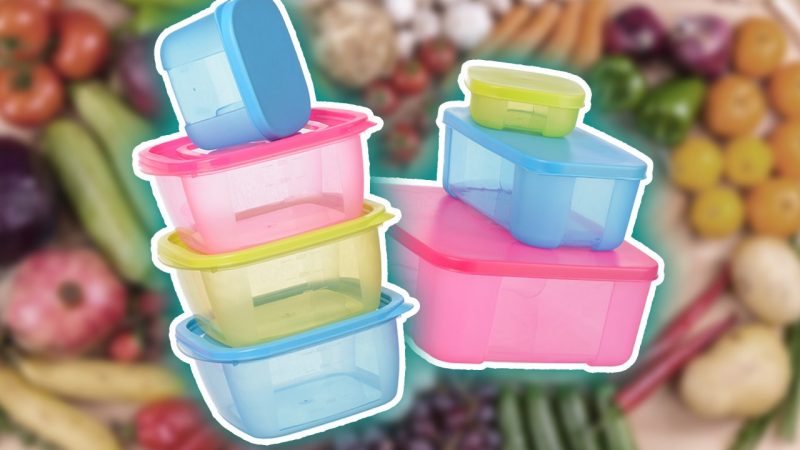Curious about how long your trusted Tupperware can last?
Well, the answer depends on the material your container is made of. If you've never heard of BPA, this chemical has been commonly used to make plastics stronger and more resilient for years. However, recent studies have raised concerns about its potential health effects, with research linking BPA exposure to a variety of concerning conditions.
But don't hit the panic button just yet because according to Tupperware's website, items sold by Tupperware US and Canada have been BPA-free since 2010, with most other brands following suit. So this is really related to those Tupperwares you've kept around the house for years and years, or bought at op-shops.
A professor of environmental health sciences at the University of Massachusetts Amherst, Laura Vandenberg, said the longer you own a plastic container, the riskier it is for your health.
"We worry about those hard, shatter-resistant plastics that were made a decade ago, that were made with BPA," Vandenberg told CNN.
"Every single time they’re used, they’re leaching small amounts of BPA out of them.
"Even the low levels of BPA that leach from consumer plastics, canned food linings or other consumer goods … have been shown to be associated with harm, and people certainly should care about it."
Vandenberg said discolouration of a container can signal that a chemical change has occurred in the plastic and that it's time to get rid of your Tupperware.
"Usually that is happening because there's lots of little micro-holes or micro-tears," she explained. "And now there's an interaction with the food and the plastic (because the plastic is degrading). So if the plastic is discoloured, it's telling you that that plastic is breaking down."
Sam Cole, the global director of product certification, food equipment, and chemicals at the National Safety Foundation, said any damaged plastic food storage should be thrown in the bin.
So if your plastic container is damaged, it's time to say goodbye.
But fear not, for there are actually tons of alternatives to the good ol' Tupperware. Whether you're a meal prep pro or a snack pack master - there are plenty of options out there for you.
“Think about replacing them with something that’s chemically inert, like glass,” Vandenberg said. “If you can’t afford to replace everything all at once, replace them one at a time.”
“I know it’s heavy, it can break and all the rest of that, but we think that the advantages to using glass containers for storing food and reheating food outweigh the risks," James Rogers, director of food safety research and testing at Consumer Reports added.
There's also porcelain, ceramic, or stainless-steel containers you can swap out for your Tupperwares - especially for hot foods and liquids.
And while we're chatting about containers and hot foods… Vandenberg said it's important to remember that when it comes to microwaving, even the “microwave safe” label on some plastic containers doesn't necessarily mean the product is safe from a health standpoint.
“Some of the plasticizers and chemicals can transfer from the plastic containers into the food during heating,” Rogers said. "So we totally advocate that you transfer your food from a plastic container into a glass bowl and microwave it that way."
So there you have it, your 'when to toss the Tupperware 101'.
You're welcome.




